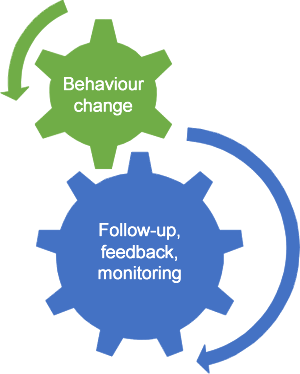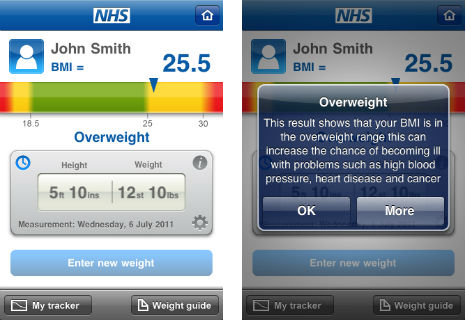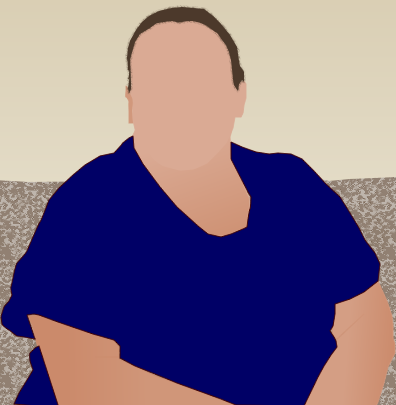Arrange

Support for self care : Follow-up and referral
In this section you will be learning how to support your patients through follow-up, monitoring, feedback and referral.
Follow-up, feedback and monitoring drive behaviour change.
Behaviour change is difficult and requires motivation to succeed. There are many evidence-based ways to support patients to feel more motivated. These include providing follow-up and feedback, encouraging patients to self-monitor, or to find social ways to lose weight e.g. joining a club, or losing weight with a friend.
In the same way that assessment drives learning, follow-up and feedback drive behaviour change.

Follow up
One of the core evidence-based interventions in the NICE Behavioural Change Guidelines is follow-up.
Short term
Offer a short-term follow-up (e.g. 2 weeks later) just to see how the patient is doing. This helps to kick start the behaviour change. Consider using electronic methods such as email or telephone.

Patient Scenario: Beverley
Consider how to set-up short term follow up for Beverley. Who would do this in your clinic and how?
Medium term
Arrange another appointment towards the target date for their goal. Reassure your patient of a supportive consultation if they haven’t managed to reach their goal. If they have reached their goal, they should be encouraged to continue their positive behaviour change, but they may find that their weight stabilises rather than continues to reduce.

Beverley wants to come back in 9 weeks time - in your clinic can she book this now, will she get a reminder of her appointment? Who should book this appointment and when?
Long term
Obesity is generally a chronic condition, that will require ongoing monitoring and support. Consider an annual review.

Beverley reached her goals in 9 weeks time and agrees to regular follow-up. How are you going to arrange re-call?
Monitoring
Encourage patients to use apps, weight charts and weekly self-weighing to keep a track of their progress. You may need to discourage patients from weighing themselves more frequently, as there is a small natural variation in weight related to hydration and digestion, that patients might find discouraging.
Feedback
Some apps provide feedback, but some patients prefer more personal feedback. Consider other members of your healthcare team that might help to record and encourage patients with weekly weigh-ins, such as pharmacy staff, healthcare assistants and receptionists.

NHS healthy weight calculator app
Referral
Local protocols may vary but NICE recommends the following referrals:
![]() Specialist obesity clinic
Specialist obesity clinic
- Patients with BMI >40
- Patients with BMI 35-39.9 with comorbidities that have not responded to diet and exercise
![]() Family specialist service
Family specialist service
- Families with obese children
![]() Paediatrician
Paediatrician
- Obese children with comorbidities
![]() Counselling services
Counselling services
- Eating disorders
Case Scenario: Anita

Patient Details
- Name: Anita Ashcroft
- Age: 52
- Ethnicity: Caucasian
- BMI: 45
- Family Background: Anita is long-term unemployed and a single parent of teenagers.
- Last Appointment: Regular attender with a history of anxiety, agoraphobia, osteoarthritis and COPD (current smoker).
Summary
Anita has a history of depression and anxiety. She is on mirtazapine for her mood and pain medication for knee pain. She is long-term unemployed and a single parent of teenagers.
1] What causal factors would you like to assess?
Submit
Causal factors might include:
- Medication (mirtazapine affects appetite)
- Anita has a history of depression and anxiety. She is on mirtazapine for her mood and pain medication for knee pain. She is long-term unemployed and a single parent of teenagers.
- Social issues (poverty, availability of cheap calorie-dense food)
2] How would you explore these issues?
Submit
Assess eating behaviour: over-eating, guilt, secrecy, pre-occupation, hoarding etc.
 Yes, I often feel guilty about how much I eat, and sometimes I wait until everyone is out before I eat and eat.
Yes, I often feel guilty about how much I eat, and sometimes I wait until everyone is out before I eat and eat.
Assess history of trauma/abuse:
- try indirect questioning (Can you tell me about the relationships in your life?),
- framing the question (Some people who have problems controlling their weight have experienced childhood trauma or domestic abuse, is this the case with you?)
- or direct questioning (What kinds of experiences with violence have you had in your life?)
 I didn’t have an easy childhood or marriage, there was a lot of shouting and hitting, but that’s over now.
I didn’t have an easy childhood or marriage, there was a lot of shouting and hitting, but that’s over now.
Assess impact of mirtazapine on weight gain: correlation of weight gain with starting the medication, willingness to try a different antidepressant link
 My weight has definitely gone up since I started these tablets, but these are the only tablets that help my sleep.
My weight has definitely gone up since I started these tablets, but these are the only tablets that help my sleep.
Assess social issues: how much control does Anita feel she has? What barriers does she feel there are to losing weight?
 I can’t really afford to eat healthily. We don’t have much of a kitchen or a dishwasher, so we tend to eat take-aways from round the corner. My knees stop me getting any exercise.
I can’t really afford to eat healthily. We don’t have much of a kitchen or a dishwasher, so we tend to eat take-aways from round the corner. My knees stop me getting any exercise.
3] What services could you refer Anita to?
Submit
- Adult mental health services / counselling services: binge eating disorder has a high remission rate with CBT
- Tier 3 obesity service: Anita meets the referral criteria for consideration for bariatric surgery
- Local social prescribing: health trainers, cooking on a budget classes, local weight-loss clubs, low impact exercise classes
Anita says:
 I'm too scared to even think about surgery, and I just don’t feel up to joining any classes. I do want to stop putting more weight on though, but it feels impossible. Perhaps if I could get a better control of my mood and my sleep I could make some changes and maybe even come off these tablets?
I'm too scared to even think about surgery, and I just don’t feel up to joining any classes. I do want to stop putting more weight on though, but it feels impossible. Perhaps if I could get a better control of my mood and my sleep I could make some changes and maybe even come off these tablets?
4] What referral options or follow-up would you suggest?
Submit
- Referral to adult mental health services / counselling services
